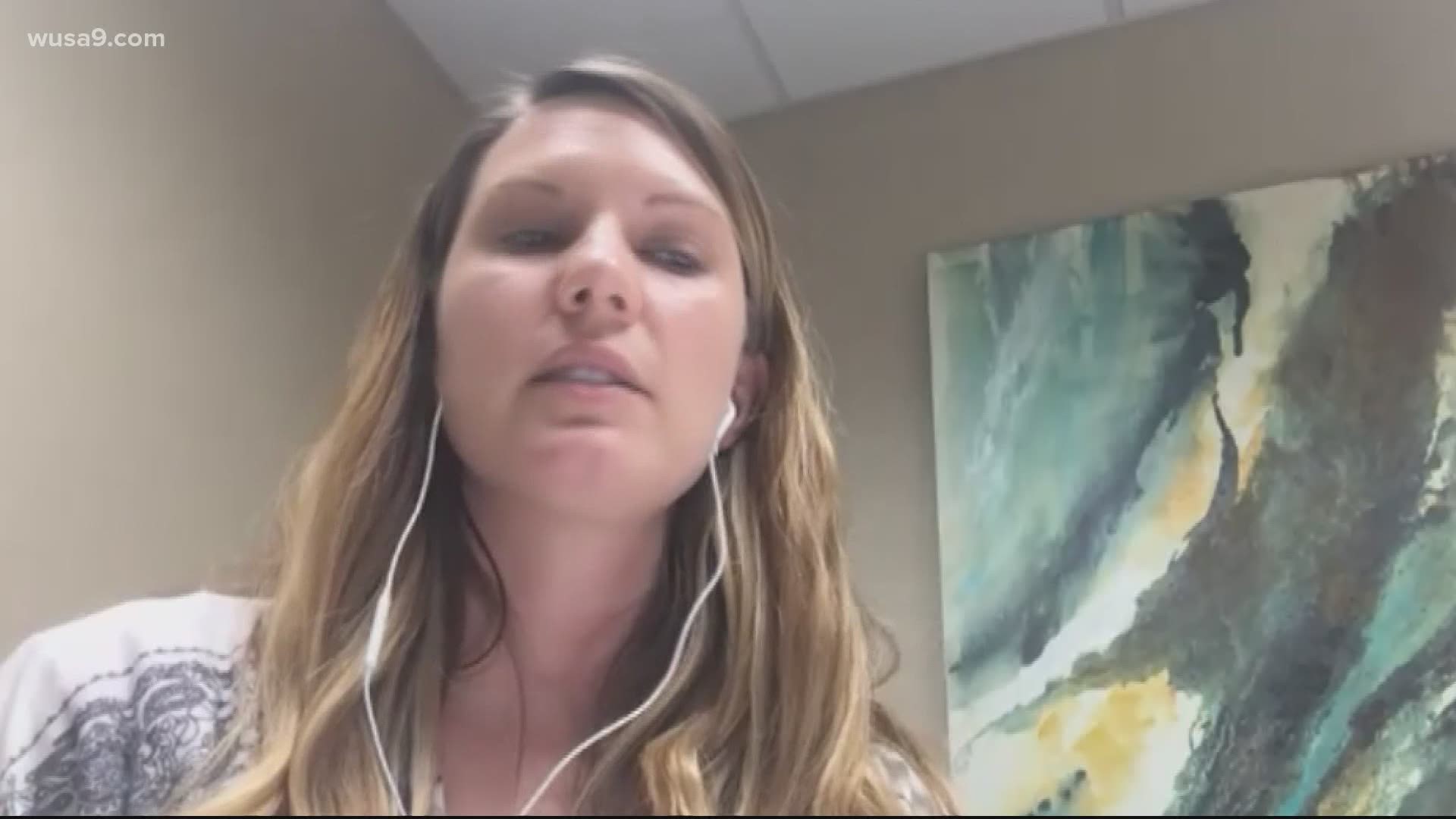WASHINGTON — The year 2020 has been filled with a lot of things for people to process.
Between pandemic-related deaths, protests against police brutality and racial injustice and losing young people to gun violence. A large number of people, including children, are impacted.
Children in Southeast D.C. cried in pain at a vigil after their friend, 11-year-old Davon McNeal, was shot and killed on Cedar Street in Southeast.
He was leaving a community cookout on the Fourth of July.
Davon’s death caused pain for hundreds of people in the District including kids.
“Picture the effect it is having on a 10, 11-year-old,” Ward 8 Councilmember Trayon White said. “That trauma, that mental health, that stress, that depression.”
“That can affect children in very different ways. Different children cope and show different kinds of behaviors,” Dr. Rebekah Lemmons, who works in clinical services with Youth Villages said.
Youth Villages is a national organization that works with young people on their emotional, mental and behavioral health.
“Even if a child isn’t showing acting out behavior, so to speak, that child could still have some symptoms of the traumatic event and still need appropriate care to really heal and to work through some of the traumatic events that have gone on,” Lemmons explained.
She said children can experience sleep problems, such as nightmares or restlessness, show changes in their behavior or have separation anxiety.
“So, maybe they find a trusted adult or caregiver that feels safe or even a safe space. They don’t want to leave that trusted giver or safe space because they need something that's calming and that’s regulating to them to help all of the chaos that’s going on around them,” Lemmons said.
What can parents do?
Youth Villages’ Chief Clinical Officer, Dr. Tim Goldsmith, said parents should do the following when talking to their children about tragedies:
- Monitor your own emotions. Stay calm. It is hard not to be emotional when talking about such a terrible tragedy. It’s important that your children see you are calm and in control. They will take their cues from you and too much emotion about the subject may add to their fears. If you’re calm, they will be reassured.
- Talk about it – in an age-appropriate way. With young children, determine whether your child is likely to hear about the incident. If they are, it’s much better for them to hear about it from you rather than an older sibling or someone on the school bus. Talk about things in the simplest way the child can understand, always mindful of her age and stage of development.
- Answer the big questions. Most children are concerned with how tragedy affects them. They wonder if they’re safe. Older children wonder why someone would do something so awful. Answer these big questions.
- Don’t be surprised by anger. Children may feel a range of emotions from fear to anger. It’s good to let adolescents express their feelings in an open discussion about thoughts and feelings.
- Be watchful in the next days and weeks. Watch for changes in your child’s normal behavior. Behavioral changes may indicate that children need more help in dealing with anxieties. For more additional information on guidance and tips, CLICK HERE.
Dr. Lemmons said it is important for parents to seek extra help for themselves and their children if needed.
“We have things engrained in our culture – these cultural norms that tell us these unhelpful thoughts about mental health services. We really have to fight that stigma and normalize that to where everyone knows that it is OK to get mental health treatment,” she said.

